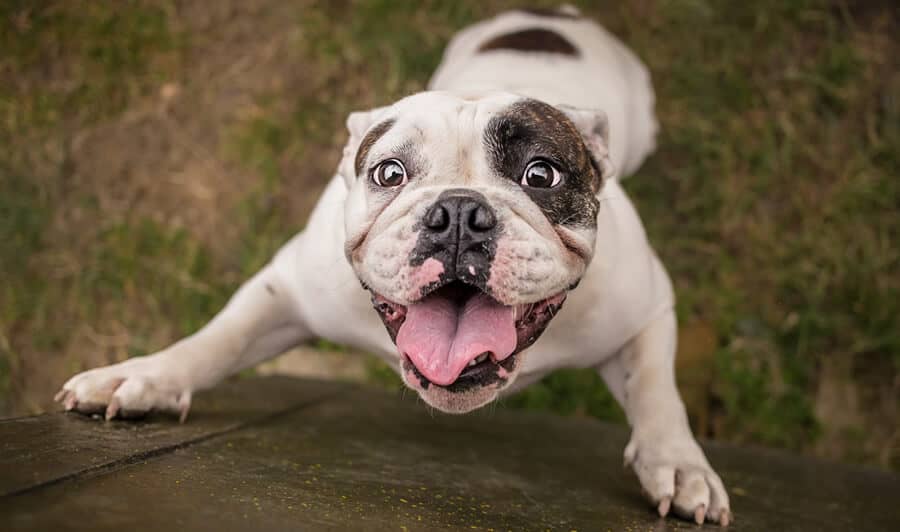
Dog recall training is designed to counter a dog's instinct to run and hide by rewarding positive reinforcement and rewards. In this article, we'll share some tips and tricks for introducing recall training to your puppy. These tips will help you train your puppy not to run around in the yard and to obey your commands. These tips can be used to help you teach the technique to you dog. These tips can be applied in your daily life.
It is important to show your puppy how to recall things in the home. It is a good idea to practice recall training outside, if possible. You can find many distractions outdoors for your dog, such as birds and squirrels. It will keep your dog safe from being chased by squirrels and birds by teaching him how to recall on a lead. It will prevent you from getting bit or injure your dog. As a result, you can enjoy the great outdoors with your dog!

Once your puppy is able to understand that "come" refers to "here", you can start using other words. Try changing your verbal cues to get your dog to respond. This will reinforce correct behavior and prevent your dog getting confused. You can also try using a command such as "here" to get your dog to come when called. Positive reinforcement is crucial for reliable recall. Always avoid distractions and use the word "here" whenever possible.
Next, create distractions in dog recall training. You can throw a ball, or your friend's bike, near your dog when you are ready for him to eat. Adding distractions will help your dog associate the word "come" with something pleasant. You should avoid giving your dog items he does not like. This will cause him think that "come is punishment." Once your dog is able not to be distracted, you can start teaching him the meaning of "come."
The next step in dog recall is to focus on distractions. The more distractions your dog encounters, the more likely he is to ignore you. Often, a dog will ignore you if he doesn't want to be distracted, so the only way to stop this is to reward him or her. It may seem simple, but it's essential to be consistent and patient. It is important to reward your efforts with a rewarding reward.

Although a dog can come to your phone, it is not likely that they will be able wander off their own path. Dogs who are naturally curious about the world will have difficulty learning to answer your call. Dog recall training should be based on the relationship you have with your dog and how you train him. It's your responsibility to reward your dog for good behavior.
FAQ
What food should I give my dog?
A healthy diet is essential for your dog.
High-protein foods include chicken, beef and fish as well as eggs and dairy products.
Fruits, vegetables, legumes, bread, cereals and pasta are all high in carbohydrate.
Low-fat foods include lean meats and poultry, fish, whole grains, seeds, and nuts.
Before giving your dog any new foods, consult your veterinarian.
How long should a dog remain indoors?
Dogs are naturally curious. This curiosity must be satisfied. If they don't have any outlets, they may become destructive. This can cause damage to property and injuries to people.
Outside, it is important to keep your dog on a leash. The leash keeps them from getting into trouble while allowing them to explore their environment safely.
He will be bored and uninterested if you keep him indoors all day. He will begin to chew furniture and other things. His nails could grow too long and cause him to have health issues.
The best way to prevent these negative consequences is to let your dog run free at least once daily. Take your dog out for a run around the block, to the car, or to the park.
This will allow him to burn energy and give him something useful.
What should you do if your dog bites someone else?
If you are attacked or threatened by an animal, ensure that it is not rabid. If this is not possible, then call for help. Do not try to resolve the situation on your own, as you may be seriously injured.
If the animal bites but isn't aggressive, take it to a veterinarian. Your vet will inspect the animal and recommend any further treatment.
In most cases, rabies shots are required. These should never be administered yourself. Only qualified people should perform this task.
What is the best pet?
The best pet is the one you love. There is no right or wrong answer. Everyone has their own opinion as to which pet is the best.
Some believe that cats are better than their canine counterparts. Others feel that dogs can be more loyal and loving than cats. Still, others argue that birds are the best pet.
Regardless of the type of pet that you decide to get, it is important that you determine what type of pet best suits you.
If you're friendly and outgoing then a dog is right for you. Cats are best suited for shy people who are reserved.
Consider the size of your house or apartment. If your apartment is small, you'll need to have a smaller pet. A large house will require more space.
Finally, remember that pets require lots of attention. They must be fed often. They should be taken out for walks. And they need to be brushed and cleaned.
Knowing all these details will allow you to choose the best pet possible.
What should I do?
This depends on you. Some people prefer puppies while others like kittens.
However, dogs are more playful and active than their human counterparts. Kittens sleep a lot, and they are very gentle.
Both breeds of animal require constant attention from their owners. They will be able to grow quickly and require lots of care.
They will also need to be checked on a regular basis. This means that you will have to spend some time with them at the vet.
Statistics
- Pet insurance helps pay for your pet's medical care, with many policies covering up to 90 percent of your vet bills. (money.com)
- For example, if your policy has a 90% reimbursement rate and you've already met your deductible, your insurer would pay you 90% of the amount you paid the vet, as long as you're still below the coverage limits of your policy. (usnews.com)
- It is estimated that the average cost per year of owning a cat or dog is about $1,000. (sspca.org)
- * Monthly costs are for a 1-year-old female mixed-breed dog and a male domestic shorthair cat less than a year old, respectively, in excellent health residing in Texas, with a $500 annual deductible, $5,000 annual benefit limit, and 90% reimbursement rate. (usnews.com)
- In fact, according to ASPCA, first-year expenses can sum up to nearly $2,000. (petplay.com)
External Links
How To
How to choose the best name for your pet
Name selection is one of most important decisions when you adopt a pet. Names should reflect who your pet is and their personality.
It is important to consider how other people might refer to you - for instance, if they are going to be called by their name in conversation. You should also consider how you would like to be called. You might be more inclined to call yourself "dog", or "pet".
Here are some tips and tricks to help you get going.
-
Pick a name that fits your dog's breed. If you're familiar with the breed (e.g. Labradoodle), search for names associated with it. Ask someone who is familiar with dogs to recommend a name that fits the breed.
-
Be aware of the meaning behind the name. Some breeds are named for people or places, others are nicknames. Because he was always running, the name Rover was given to a Labrador Retriever.
-
What would you prefer to be called? Is it more fun to be called "dog" than "pet"? Would you rather call your dog "Puppy", "Buddy" or "Buddy?"
-
Make sure to include the owner's name. It is a smart idea to give your dog a name that includes both your first and last names. However, it doesn't mean you should limit yourself to just including the names of family members. You may have your dog as a part of your extended family.
-
Keep in mind, many pets have multiple nicknames. A cat, for instance, could go by different names depending upon where she lives. When she visits her friends, she might be called "Kitty Cat" but "Molly", at home. This is especially true of cats who live outdoors. They will often adapt their names to match their environment.
-
Be creative There are no rules that say you have to follow a certain naming convention. Be unique and memorable in your choice.
-
Be sure to check that your chosen name does not already belong in the hands of another person or organization. This will ensure that you don't accidentally steal another's identity.
-
It is not easy to choose a name for your pet. Sometimes, it can take time to find the right name for your dog. Keep at it until you find the right match.